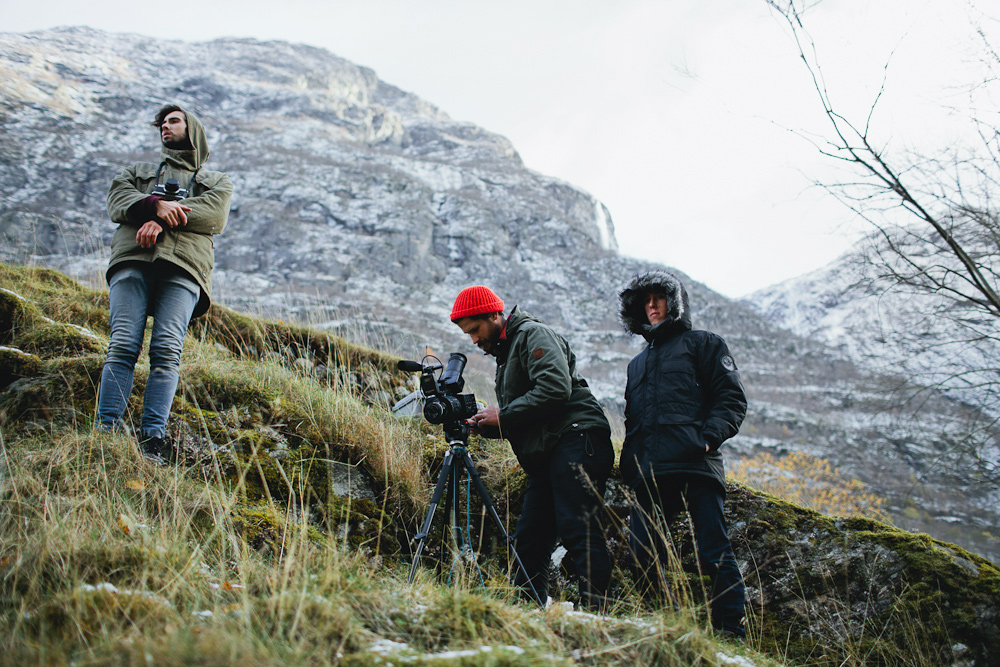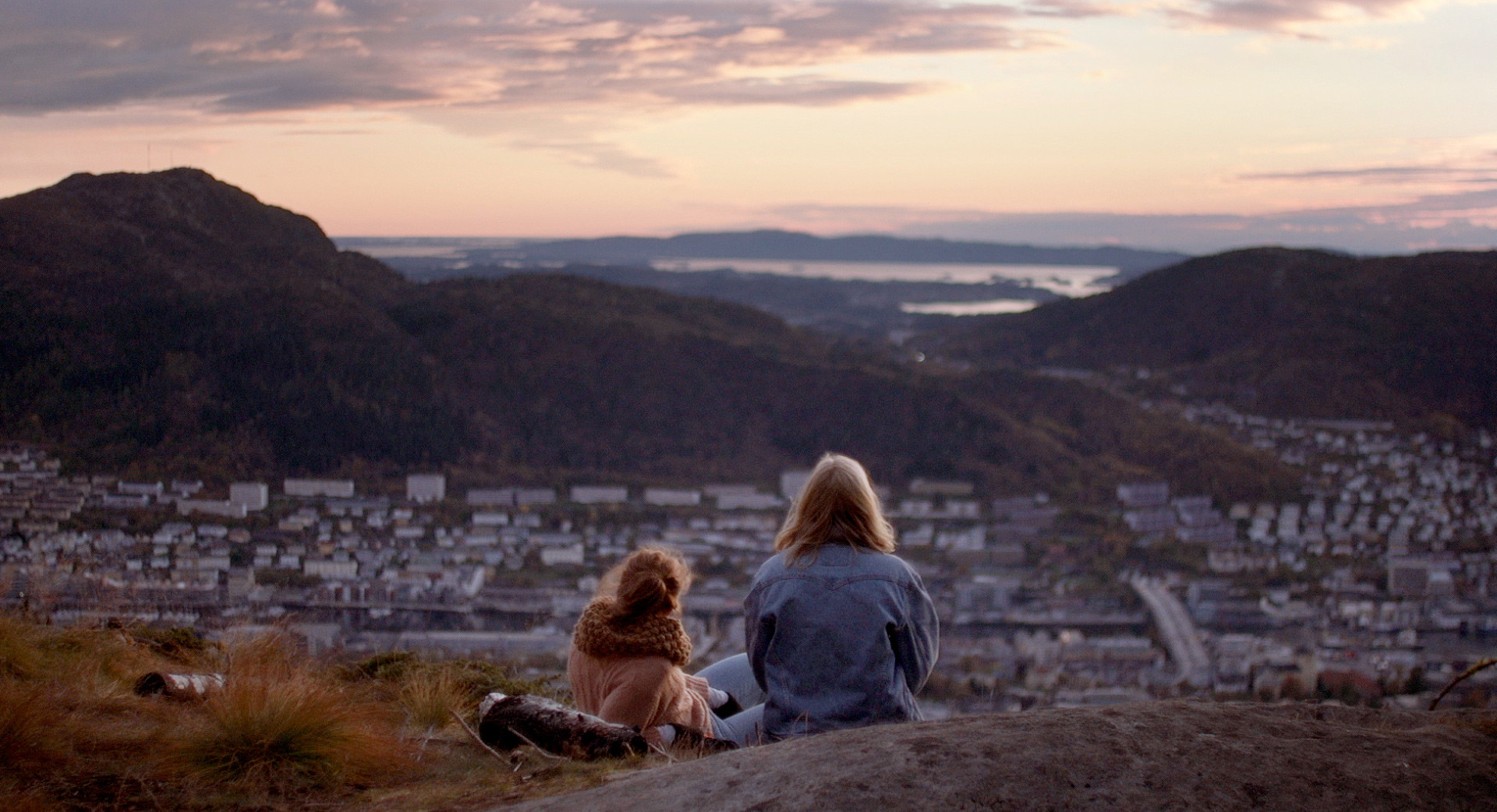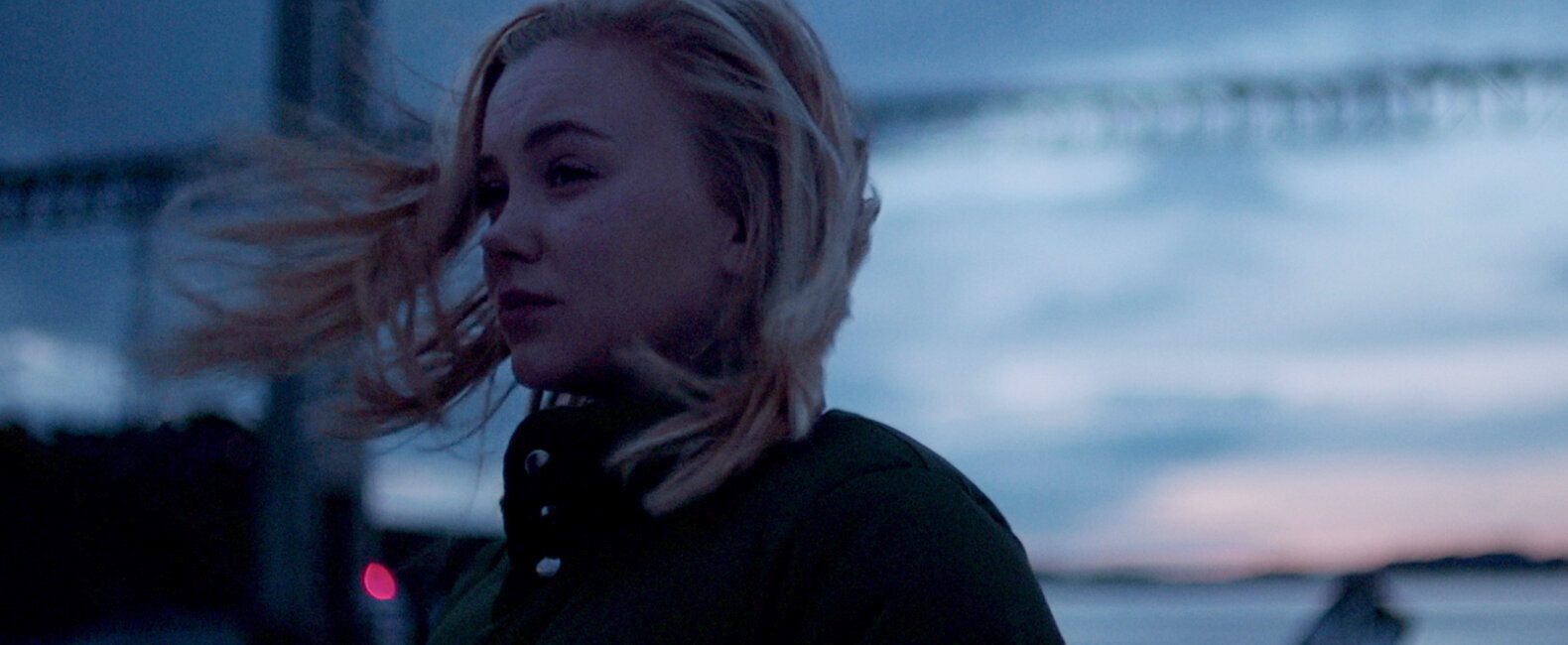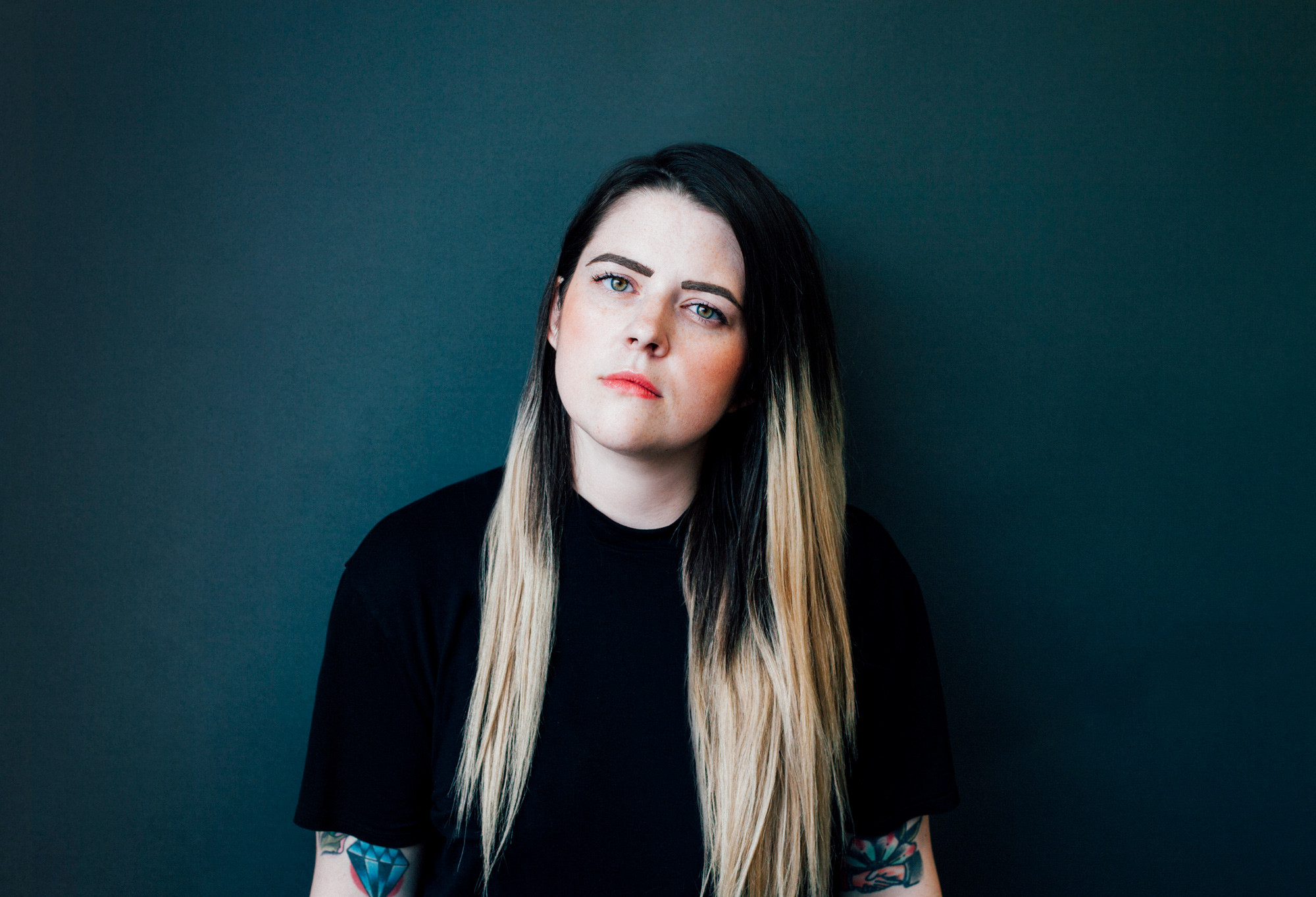From the outside, it’s not always clear what a producer does. Turns out it’s the same on the inside. “There’s no manual for it,” Nicole Irene Dyck told us, a prolific producer who, at the time of this interview, was working on no fewer than six films. “When people ask me what a producer does, I laugh and tell them, ‘Oh, everything’s my fault. That’s what I do.’” It’s an essential role. And as anyone who’s ever made a film knows, a good producer is the unsung hero behind every successful project, and the scapegoat for every failure. So it goes.
Nicole Irene stumbled into her first feature film by accident. In fact, she literally walked in on it — in the living room of the house where experimental pop band We Are The City was living. That film, Violent, would take five years to finish; and it eventually made a huge European festival run, solidifying itself as one of the great indie films of the past few years — and simultaneously launching Nicole Irene’s career.
Here’s Nicole Irene Dyck on the ups and downs of indie film production.
Musicbed: The first film you produced was Violent. How did that happen?
Nicole Irene Dyck: Some really good friends of mine are in a band called We Are The City, and they were always making great music videos with Amazing Factory (their collaborator for Violent). One day I went to their house, and they had tons of Post-It notes on the wall. I was like, “What’s this?” They said, “We’re making a film.” Immediately, I said to myself, I want to be a part of this. I want to help them figure out how to do this. I had no idea how hard it is to make a feature film — and not just make it, but also find it a home and connect it with an audience. It’s such a different thing. With technology now, it’s possible to make something in one day and be proud of it. So to be a part of something made over the course of five years was a truly amazing and rewarding experience.
How do you find the stamina to work on something for so long?
You have to trick yourself a little bit; otherwise, you’d never do it. With Violent, none of us had done this before. We were all very young. I was 24 when I signed on. The writers were 22 to 24 years old when they wrote it. This was everyone’s first time on a feature film, so we didn’t fully know what we were getting into. There is still no way to know! Each film is a new mountain with new terrain, and somehow, if you stay focused on each step, you climb the mountain.
And the guys who wrote it are in the band?
Exactly. The film is a collaboration between We Are The City and Amazing Factory. At first they were writing a record. And while they were writing the record, they thought, Why don’t we come up with ideas for music videos? Then they realized that maybe what they were writing was a short film. And then, as they kept writing, they realized, Oh, wait, this is a feature film. They moved into a house together to write it. By the time I walked in and found those Post-It notes on the wall, they’d been collecting their thoughts and memories for a year.
In the end, the film had no formal script. A lot of times the script was written the day before it was shot. And the film ended up being in Norwegian, even though none of the filmmakers speak Norwegian. And it stars a woman, even though all the filmmakers are men. But that was the whole concept and challenge. What happens when you take all the memories and questions about life that four people have and see how they overlap? Can you express emotions or questions about life that are universal? That translate no matter who you are or where you are? That was the experiment.
Sounds risky.
It was pretty wild. But I recently read this quote by an artist who said you should always do the thing you think you may regret — always throw that thing into the project — because usually that’s the most interesting part. I love that. Thinking back on all the films I’ve been a part of, the most insane thing you think you could regret usually ends up being the most beautiful and interesting.
Do you have any examples?
I did a music video with Jared Hogan recently, and we decided at the last minute to release it in vertical format. We didn’t shoot it to be vertical. We shot it horizontal, and we were planning on releasing it horizontal just like every other video. But out of nowhere, two days into editing, Jared messaged me and was like, “I think I’m gonna do it vertical.” And I was like, “What are you even talking about? This is insane.” I was worried we were going to regret it. That it was too crazy. But in the end, it’s the number one thing people remember and want to talk about. It’s the most interesting part. So, try some things you may regret. That’s my motto. Well, one of my mottos.
How do you balance being the person who has to keep things on the rails with letting them go off the rails sometimes?

Well, the thing about being a producer is that it’s extremely vague and ambiguous. There’s no manual for it. Pretty much every other role is pretty clear. But when people ask me what a producer does, I laugh and tell them, “Oh, everything’s my fault. That’s what I do.” But I put up with it because of everything that’s beautiful about film. I’m not passionate about everything being my fault, or keeping receipts, or learning accounting and legal. But I do all those things because I’m so passionate about seeing directors realize their vision.
What’s the reasoning for shooting Violent in a language none of the filmmakers speak?
Well, the original idea was that if we shot it in a different language, maybe the acting wouldn’t feel so awkward. So many first-time films seem awkward because the acting is bad. But that idea was proven wrong pretty quickly after a few bad auditions. The team went to Norway without a lead actress, and they cast her by putting up posters. But it was soon learned that even if someone is speaking a different language, you can still tell when they’re a bad actor. When we finally found Dagny, who plays the main character, everyone knew immediately that she was perfect.
What are some lessons you learned from making Violent?
For one thing, if you’re going to produce a movie, then you’d better love it because you’re going to watch it 200 times. When people ask me how I choose the films I work on, I’m like, “I have to imagine myself watching it a couple hundred times and then talking about it for 10 years.” These things don’t go away. Another thing I learned is just how important it is to work well with people and be a good communicator. I believe that if you’re working with the right team, you can literally do anything. But there are always going to be moments that are terrible, so you have to trust people and you have to be kind. And you should try to have a good time. If you can’t have a good time, then what are you doing?

It’s funny that the first lesson we learn in life — about having a good attitude and being respectful — ends up being so important.
We never stop learning that our whole lives.
After rewatching Violent so many times, what do you appreciate about it now?
I love how the writers strived toward this concept of universal questions and feelings. No one escapes that film without feeling something. The film is written in such a beautiful way that no matter what point of your life you’re at, or what you believe, or if you’re male or female, or whether you live in this country or that country — it still makes you feel something.
What makes a movie “good”?
There are a lot of answers. Every movie has a different purpose. But the reason I love movies, the reason why I think a movie is great, is because it gives us an opportunity to get outside of our own perspective. It’s one of the quickest and deepest ways to enter someone else’s story. One of the worst things about being a human being is that we’re selfish. We don’t see the world as it is. Everything is viewed through our own lens. But films give people a chance to get outside of their own story and enter someone else’s. If a film can give you a perspective outside of your own, then it’s worth your time.


















































































